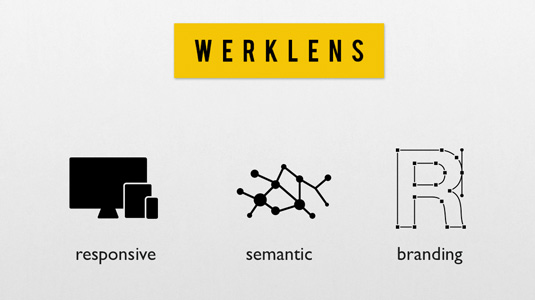What I learned from my first major pitch
Design student Sven Lenaerts recently gave his first big pitch. Here's what he learned from the experience.
Recently I had the unique opportunity to pitch at a major competition, called Apps For Flanders (nothing to do with The Simpsons - it's a town in my home country of Belgium). It excited and frightened me at the same time, as I'd never done a pitch before and I wasn't sure how good I would be at public speaking. It was also quite a technical event (it was all about open data and applications), whereas all I had to pitch was a concept and some accompanying designs.
Although I didn't win the competition, I was complimented on my pitching skills. So in this article I'd like to share my experience with you and what I learned during my first pitch...
- Read all our career-related articles here
01. Preparation is key
Sounds like a massive cliché, right? It's true, though: good preparation is key to a successful pitch. We've all seen rambling Powerpoint presentations, overloaded with bullet points and text that the speaker rushes through because they haven't carefully planned how long it's all going to take. Don't let that speaker be you.
02. Keep it simple

I do use Powerpoint myself, but I believe a minimalist approach is best. Nothing too fancy, just a couple of words or strong pictures. At my first pitch, this gave me the opportunity to keep people interested by using photos and symbols that supported the story I was telling.
You can even - as I did - find ways to add some humour into your presentation with the use of appropriate visuals, although it's important to strike the right balance and not detract too much from the serious points you're making.
03. Don't prepare too much
There is such a thing as overpreparation - it's important to leave space in your plan to improvise. For example, I keep my notes under my slides extremely limited. I believe your presentation feels much more engaging if you speak naturally, based on some key words and the visual guidance of your slides. So I wouldn't personally prepare a full text of what I'm going to say.
Try to interact with the audience during the pitch. Watch for their reactions to what you say and find ways to build that into your presentation. If people look bored, increased interaction and humour can improve your presentation tremendously.
Daily design news, reviews, how-tos and more, as picked by the editors.
04. Don't just deliver a story - deliver your story

The great thing about public speaking is that a crowd is listening to you. As obvious as that sounds, it's the opportunity to deliver your story. So I started my presentation with a personal experience, rather than just introducing myself.
A pitch isn't just about a product or an idea, it's also about the person who's giving it. You as a person can make a product look far more awesome if you show how passionate, motivated and interested you are. It's the human factor what make presentations so great, so use your presence!
For this reason, it's alright if your product isn't completely finished yet. In my first pitch, I just had some designs and a concept. Not a single aspect of my application was coded up. Did that matter? No, I had a vision and that's what counts. You want people to understand the possibilities of whatever you're trying to pitch.
05. It's okay to be nervous
Even the most experienced speakers can feel terrified the moment before they hit the stage. So it's okay to be nervous. In fact, it can be a good thing, helping to keep you focused.
Personally, when the moment comes, I enjoy a second of silence before I start. I look at the public and somehow, it makes me calm again. I convince myself I'm going to rock this show and I start. That's what defines good public speakers: they know that they're going to rock the show, even though they might be nervous.
Conclusion
I didn't win the competition, but the fact that I was able to pitch well meant that I was one of the six finalists.
Delivering a good pitch makes you feel confident and that's what matters most whenever you're speaking in public. So I did win in a certain way. I won experience.
In conclusion, everyone can be a good speaker, as long as you believe in your story, your presentation and most of all, yourself. So go for it!
Words: Sven Lenaerts
Sven Lenaerts is a 20-year-old student in Interaction Design living in Belgium. Follow him on Twitter @svenlen.
Liked this? Read these!
- Win more pitches! 7 pro tips
- How to build an app
- The best free web fonts for designers
Have you got any pitching tips you'd like to share with the community? We'd love to hear them in the comments below!

The Creative Bloq team is made up of a group of art and design enthusiasts, and has changed and evolved since Creative Bloq began back in 2012. The current website team consists of eight full-time members of staff: Editor Georgia Coggan, Deputy Editor Rosie Hilder, Ecommerce Editor Beren Neale, Senior News Editor Daniel Piper, Editor, Digital Art and 3D Ian Dean, Tech Reviews Editor Erlingur Einarsson, Ecommerce Writer Beth Nicholls and Staff Writer Natalie Fear, as well as a roster of freelancers from around the world. The ImagineFX magazine team also pitch in, ensuring that content from leading digital art publication ImagineFX is represented on Creative Bloq.
